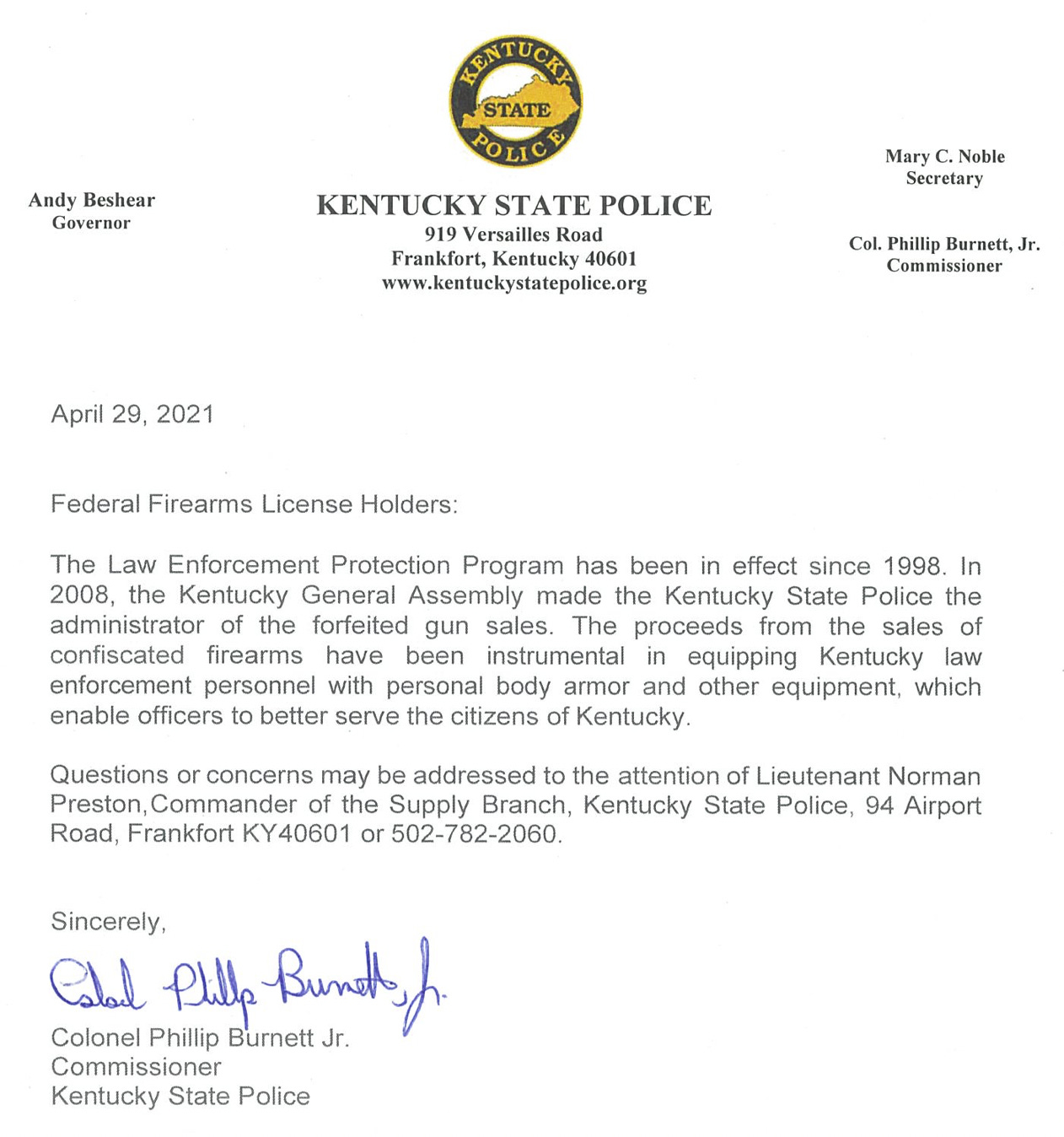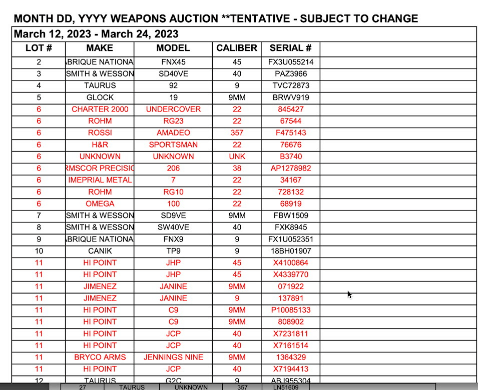As we grieve another shooting, this one in Louisville, it’s worth noting that the State of Kentucky has a policy of auctioning off confiscated guns — guns that have been shown to resurface, post-auction, in additional crimes — and then using that blood money to buy their police officers more body armor and other equipment to protect them from the guns their force just sold.
This auction is not an embarrassment to the Kentucky State Police. It hosts an entire website proudly broadcasting its legislature-approved scheme to get more guns on the streets, where those guns then endanger civilians and the state police’s own officers, who are in turn given body armor financed by the sale of the guns that threaten them.
Here is a recent batch of guns that the Kentucky State Police is proud to be offering:
The mayor of Louisville, Craig Greenberg, has tried to find ways of stanching this ghoulish process, by labeling guns and trying to disable them. But the tools available to him are limited — and the obstacles he has been able to impose, surmountable.
This is how The Louisville Courier Journal explains the state police’s scheme:
Since 1998, Kentucky law enforcement has been banned from destroying the deadly weapons they take off the streets. Instead, guns that cannot be returned to their legal owners must be sent to Kentucky State Police and sold at auction to federally licensed gun dealers.
Under the law, 20% of the proceeds from the sale of confiscated guns goes to the State Police to administer the auctions. The rest goes to the Law Enforcement Protection Program grants, administered by the state’s Office of Homeland Security.
Tens of thousands of weapons — pistols, rifles and shotguns — have been auctioned to the highest bidder over the years, netting millions of dollars in grants that help law enforcement agencies pay for potentially life-saving equipment for officers: body armor, tasers and duty weapons.
The newspaper has found that at least two dozen of the guns sold at auction have later resurfaced in criminal cases in Louisville.
Is there a better example of the American refusal to grapple honestly with the scourge of gun death? A state police force taking weapons off the street, barred by law from keeping them off the street forever, instead compiling them into grids on spreadsheet PDFs, assigning them lot numbers, auctioning them off to dealers, who then sell them to people who, from time to time, commit yet more shootings with those guns, some of those shootings ensnaring police officers, who may or may not be lucky enough on a given day to be wearing body armor financed by the very gun striving to penetrate it.
The Ink is supported by readers. If you enjoy our posts, consider becoming a paid subscriber to support the work you want to see in the world.
This post was originally published on The.Ink.

